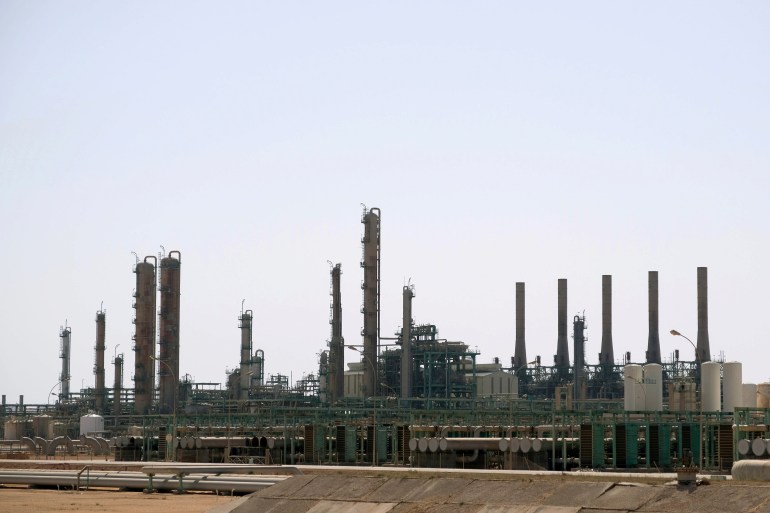Military and security leaders in the Libyan capital, Tripoli, announced their readiness to confront anyone trying to cause chaos in the city, while the National Unity Government appointed a new head of the Oil Corporation and decided to reconstitute it, amid growing disagreement between political factions over control of this institution.
In a new statement issued yesterday evening, Tuesday, military and security leaders stressed their readiness to confront anyone who tries to cause chaos inside Tripoli, and demanded that the elections be held as the only way out of the political crisis.
Military and security leaders rejected what they described as the new transitional stages under any name.
The statement affirmed support for the path of national reconciliation, provided that it is not a means to empower war criminals from the joints of the state, as they put it.
It is noteworthy that the government of Fathi Bashagha, appointed by the House of Representatives in Tobruk, had earlier tried to operate from inside Tripoli, but forces loyal to the Government of National Unity prevented it from entering the city.
The unity government headed by Abdel Hamid al-Dabaiba refuses to hand over power except to a government assigned by a new elected parliament.
A man from the Gaddafi era
On the other hand, the Libyan National Unity Government decided yesterday to restructure the board of directors of the National Oil Corporation headed by Farhat Omar bin Qadara, to succeed Mustafa Sanalla.
And Anadolu Agency quoted an official source in the Ministry of Oil that the Council of Ministers in the Government of National Unity reconstituted the Board of Directors of the National Oil Corporation with a president and 4 members.
The official added that the head of the corporation is Farhat Omar bin Qadara, and the members are: Khalifa Abdel-Sadiq, Undersecretary of the Ministry of Oil, Hussein Abdullah Saffar, Masoud Mousa, and Ahmed Ammar.
Bin Qadara served as governor of the Central Bank of Libya during the rule of the late Colonel Muammar Gaddafi between 2006 and 2011.
Sanalla has led the Petroleum Corporation directly since 2015, in light of the abolition of the Ministry of Oil until its return with the National Unity Government headed by Dabaiba.
On June 23, Dabaiba announced his approval of the Minister of Oil, Muhammad Aoun, regarding the change of Sanalla and the suggestion of new names to adopt the most appropriate.
On more than one occasion, Aoun accused Sanalla of withholding revenue and production information, and of addressing company managers not to take into account the correspondences of the Ministry of Oil.
Oil production in Libya fell from 1.4 million barrels per day to 700,000 barrels (Reuters)
resumption of exports
In a related context, the National Oil Corporation in Libya announced the lifting of force majeure on exports from the ports of Brega and Zueitina.
The company added that negotiations are continuing to resume exports from the port of Sidra, and to operate the fields of the Waha and Mellitah companies again.
Recently, the country's production of crude oil declined to between 100,000 and 200,000 barrels per day, due to the closure of the export ports and fields by protesters.
Since last April 17, the Libyan oil sector has witnessed a wave of closures of fields and ports, by tribal groups in the south, center, southwest and east.
These groups are demanding the handover of power to the government of Fathi Pashaga, who is appointed by the House of Representatives in Tobruk, while Dabaiba refuses to hand over except to a government mandated by a new elected parliament.
Before the closures crisis, the country’s production of crude oil was 1.2 million barrels per day, and on some days it reached 1.4 million barrels, compared to less than 700,000 currently.

